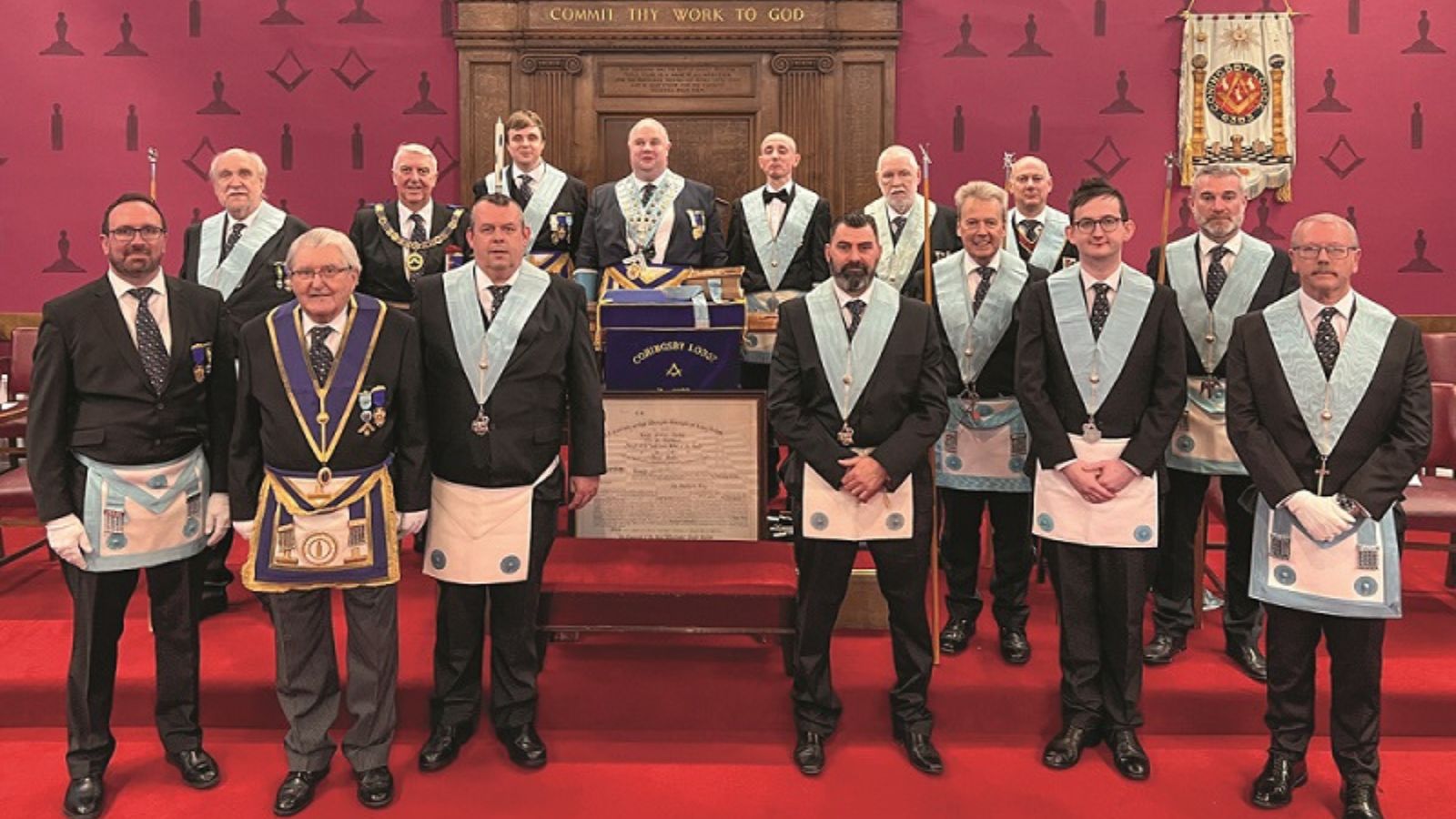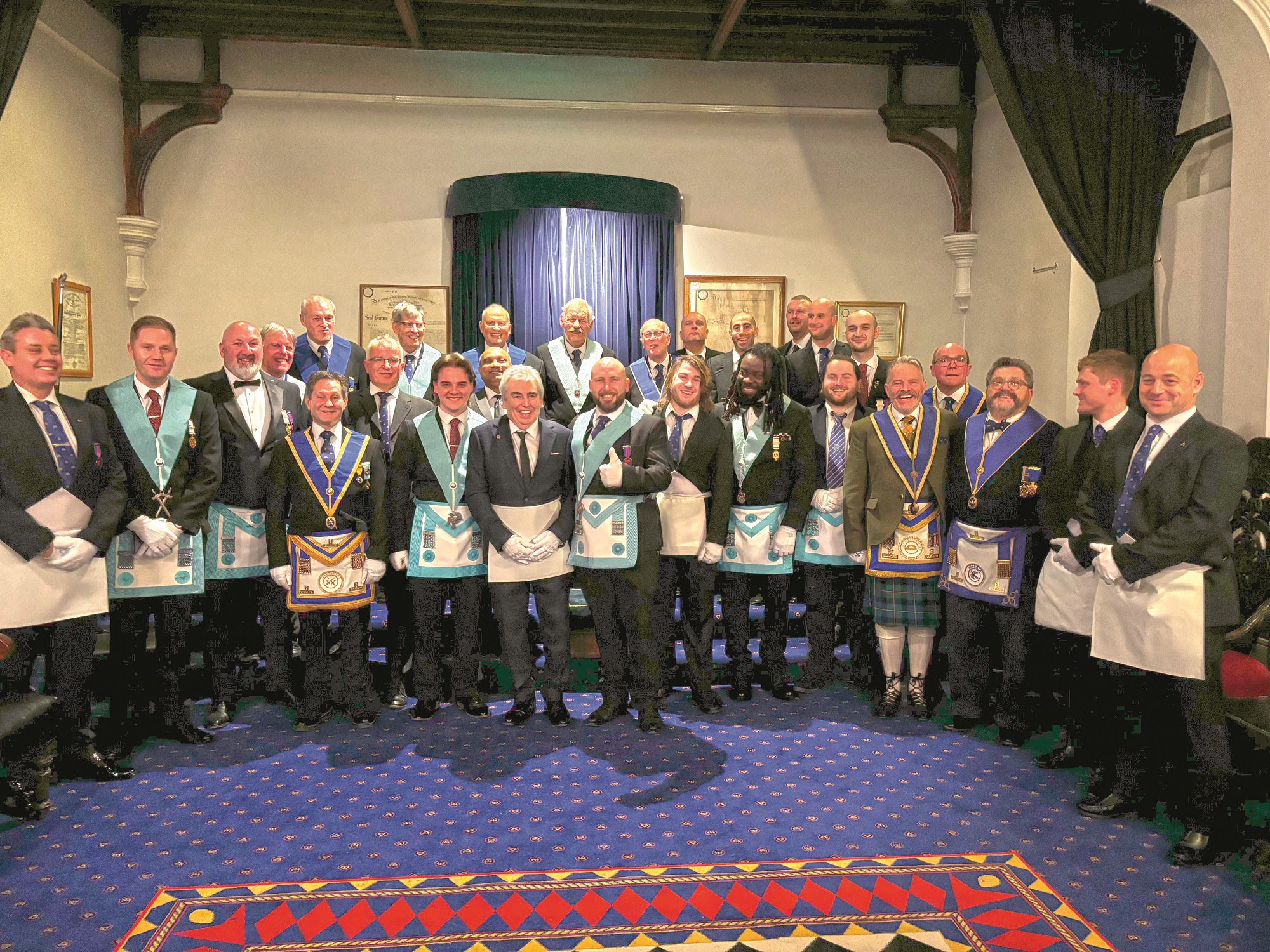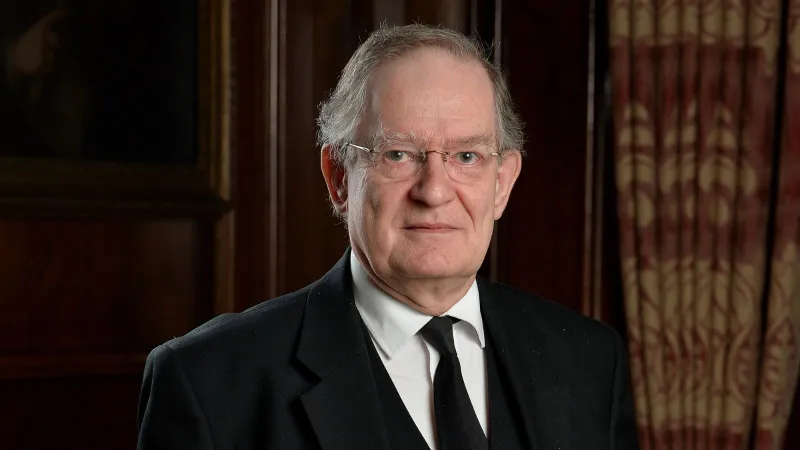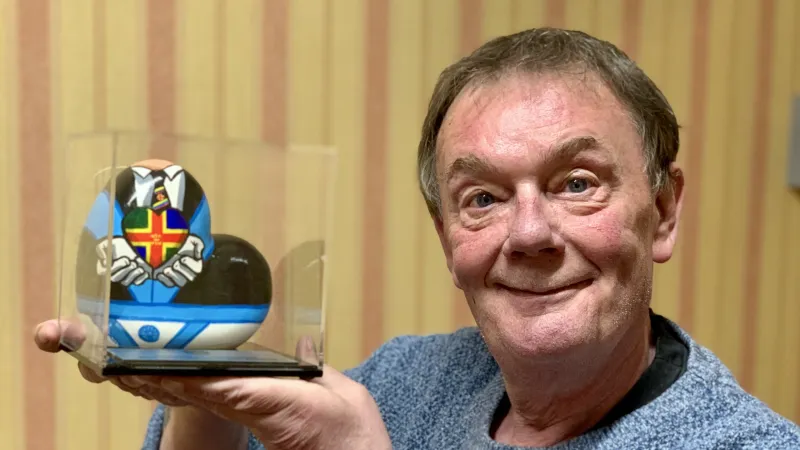
Basil Clement has been blind since birth, but that has never impeded his enjoyment of Freemasonry. When he was Installed as Worshipful Master of Herefordshire’s Coningsby Lodge in December 2023, it was the second time Basil had been in the Chair. But this ceremony was even more unusual, as the Junior and Senior Wardens were also blind. It meant that Coningsby Lodge had three visually impaired members in major office at the same time – a testament to Freemasonry’s openness, adaptability, and spirit of diversity. Given the Lodge’s experience in supporting visually impaired Freemasons, the ceremony went smoothly following minor alterations.
‘The biggest challenge was the Festive Board when I had to take wine with my Wardens and we had to make sure we were at least approximately looking at each other as we did so,’ says Basil.
Basil became a Freemason in 2012 having been fascinated by the Craft since his teens when his grandmother warned him to never become a Freemason. ‘She really didn’t think it through because if you tell a 14-year-old boy that they shouldn’t do something, it’s all they will think about,’ he says. ‘I started to learn about Freemasonry and there were so many things that impressed me.’
When it came to his own Initiation ceremony, Basil was aided by the discovery in the Lodge of a braille copy of the ritual that dated back to World War II. He uses this in combination with text-reading software on his computer.

Over in Wiltshire, Richard Lamb has just begun his journey in Freemasonry as an initiate in Sarum Lodge. Richard, 63, was born with retinitis pigmentosa, a chronic hereditary eye disease. He lost his sight almost completely by the time he was 40. Richard was persuaded to become a Freemason by a close friend, who was able to advise the Lodge on how to make Richard feel comfortable. This meant someone providing an arm to help him get around, as well as some minor changes to the ceremony. The hoodwinking still took place because of the symbolic importance.
‘The Initiation was very interesting and the people who guided me were really helpful,’ he says. ‘My proposers both know me quite well and I was aware that a lot of effort had gone into the ceremony. They had a rehearsal the night before to make sure it would work and I was handed various objects as opposed to having them pointed out.’
Like many new Freemasons, Richard found the experience fascinating and was able to make even more of the ceremony when he attended an Initiation at another Lodge soon after his own.
Basil has introduced two visually impaired friends to Freemasonry – Andy Bailey and Jason Payne, who are now Senior and Junior Wardens of Coningsby Lodge. He thinks that Freemasonry is particularly well-equipped to support the needs of visually impaired Freemasons and says it compares favourably with other experiences he has had as a blind person, where there can be a tendency towards being ‘patronised or ignored’.
He feels that this could be because Freemasonry tends to ‘attract like-minded people who are different enough to make things interesting’, but also because a fundamental tenet of Freemasonry is to treat everybody on their own merits.
A conversation that Basil had early in his Freemasonry career about three hypothetical Freemasons makes the point. He says, ‘One is a brilliant ritualist, socially awkward and financially hard-up; another is fantastic at socialising, not very interested in ritual, but pays their dues; the third is incredibly generous, but doesn’t care for socialising or ritual. You have three completely different people who are all good Freemasons for different reasons. In Freemasonry, people are accepted for who they are and what they can contribute. So, as long as people contribute in the way they can, they are welcome.’
That same welcome was appreciated by Richard during his Initiation at Sarum Lodge. He says the effort they had gone to was ‘humbling’. ‘They wanted to make sure everything was right for me and that I felt welcome,’ says Richard. ‘If something had gone wrong, it really wouldn’t have mattered to me, but it clearly would have done to them. Now I have joined, I will go as often as possible. I’m also planning to go to other Lodges with a friend, as I’m interested in understanding more about Freemasonry.’
Having spent more than a decade as a Freemason, Basil’s only wish is for a wider acknowledgment of the challenges facing Freemasons with disabilities. ‘The automatic things that people think of when an organisation discusses diversity are ethnicity, age and sexual orientation,’ he says. ‘People should obviously consider those things, but they should also regard the needs of disabilities alongside them.’


